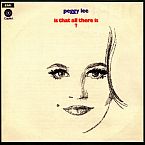Is That All There Is?by Peggy Lee

Songfacts®:
- This song alternates between spoken narration and the sung chorus. It's about a woman sunk in chronic boredom, perhaps depressed, to the point where she is not impressed with some of life's greatest spectacles. It's rather macabre.
First, she watches her house burn down and asks, "Is that all there is to a fire?"
Second, she goes to "The Greatest Show On Earth" and wonders, "Is that all there is to a circus?"
Third, she meets a boy, falls in love and they break up. "Is that all there is to love?" she wonders. - This was written by the mighty songwriting team of Jerry Leiber and Mike Stoller, whose hits include "Jailhouse Rock" and "Stand By Me."
Leiber, the lyricist in the duo, based the words on the German writer Thomas Mann's 1896 short fiction story Disillusionment. A quick read will reveal that much of the lyric comes straight from the story, right down to a child watching a fire and the question, "Is that all there is to it?" - Leiber and Stoller wrote the song with entirely spoken lyrics, essentially a recitation. The changed it to add a singable chorus after pitching it to Georgia Brown, a British singer who wanted to perform it on her UK TV special Georgia's Back. When they played her the song, Brown said, "It's wonderful. I love the stories, but I gotta have something to sing."
Leiber and Stoller obliged. She sang it on the special, which aired on May 13, 1967. No footage exists because the BBC recorded over it to save tape, which was expensive.
Leiber and Stoller pitched the song to other artists, hoping to get a proper recording. The first to release it was Leslie Uggams, who included it on her 1968 album What's An Uggams? but didn't issue it as a single. Uggams is an actress as well as a singer, which helped because the spoken parts are essentially acting.
They kept pitching the song until it reached Peggy Lee, another actress/singer who was very popular in the 1940s and 1950s (she recorded the most popular version of "Fever") but had trailed off in the 1960s.
"When it was played for Peggy, she said, 'That's my life story. How did you know all that?'" Mike Stoller recalled in a Songfacts interview. "She said, 'If you give this song to anybody else, I'll break all your pencils.'"
Lee's version was released as a single in 1969 and was a surprise hit, going to #11 on the Hot 100 and #1 on the Adult Contemporary chart. "Peggy's is really the essential version of that song," Stoller said. - The actress Marlene Dietrich was offered this song before Uggams and Lee, but she turned it down. Leiber and Stoller also considered Barbra Streisand, who, even though they sent the song to her manager, complained years later that she'd been passed over for it.
- The ending of this song refers to suicide, with Peggy Lee addressing the listener directly:
I know what you must be saying to yourselves
"If that's the way she feels about it why doesn't she just end it all?"
Oh, no, not me
I'm not ready for that final disappointment
This is not how the song was written. The line was supposed to be:
I'm in no hurry for that final disappointment
"Which is the joke," Jerry Leiber said in More Songwriters on Songwriting. "'I'm not ready for that final disappointment' is not a joke. But she insisted on singing 'ready' because I think she felt that it sounded more natural. And she missed the point." -
- Randy Newman did the orchestration and arrangement on Peggy Lee's version. "He added a great deal because the first two verses he changed the music to the spoken voices and it was marvelous," Mike Stoller told Songfacts. "The last two verses were with the music I had originally written, but again, arranged by Randy Newman. It's a wonderful recording."
- Along with Mann and Kafka, there is yet a third German influence on this song: Mike Stoller composed the music using the operas of Kurt Weill and Bertolt Brecht. You'll remember them as the satirists whose work influenced such pop hits as "Alabama Song" and "Mack The Knife."
- According to Hound Dog: The Leiber And Stoller Autobiography, Peggy Lee did 35 takes of this song before finding "pure magic" on Take 36. Just one problem: The engineer forgot to hit the record button, so she had to sing it again. Take 37 is the one we have today.
- Peggy Lee's label, Capitol Records, didn't want to release this song. She fought for it by using an appearance on Joey Bishop's late-night talk show as a bargaining chip to get the song released.
- 1969 was a weird and wonderful time in music when oddities like "Is That All There Is?" could do very well. Another big hit that year was the apocalyptic "In the Year 2525" by Zager & Evans. There was also an orchestral #1: "Love Theme From Romeo & Juliet" by Henry Mancini.
- "Is That All There Is?" shows up in various movies and TV shows, notably the 2015 episode of Mad Men, "Severance," where it's a fitting theme for the character Don Draper, who never seems satisfied despite having everything a man could want.
Another poignant use of the song is in the 1985 Martin Scorsese film After Hours, where it plays on a jukebox all by itself in an empty club with just three people present, listening in silence for at least a whole verse. After Hours is a Kafkaesque black comedy which even quotes a passage from a Kafka story as part of its dialog, so it fits.
Other movie uses include:
The Beach Bum (2019)
The Nines (2007)
Basquiat (1996)
TV series include:
The Simpsons ("Children of a Lesser Clod" - 2001)
Sex And The City ("I Love a Charade" - 2002) - Donald Trump loves this song. On tapes released by the New York Times, which contain interviews by journalist Michael D'Antonio for his 2014 biography The Truth About Trump, the billionaire explained:
"It's a great song. Because I've had these tremendous successes and then I'm off to the next one, because, it's like, 'Oh, is that all there is?' That's a great song actually. That's a very interesting song, especially sang by her, because she had such a troubled life."
- More songs from Peggy Lee
- More songs featuring orchestras
- More songs with a spoken part
- More songs written by Leiber and Stoller
- More songs that were written for other artists
- More songs inspired by books
- More songs used in movies
- More songs about a circus or carnival
- More songs about laziness or boredom
- More songs used on The Simpsons
- More songs from 1969
- Lyrics to Is That All There Is?
- Peggy Lee Artistfacts
Comments: 7
- Khalil from Jacksonville, Florida.I grew up in Cleveland, Ohio in the 60's-70's. There was a local television station wjw ch 8, a CBS affiliate that showed B movies after the news went off at 11:30 pm. It was originally called "The Big Chuck & Houlihan show then The Big Chuck & Little John show. They invited various schools and youth organization's to the live broadcast studio. The epilogue or end of show theme song was Peggy Lee's Is That All There Is. They never played the different versus, yet they just looped the chorus so I never heard the whole song until years later, but it stuck and I like it currently. I thought the song was recorded in the 40's and was surprised when I found out it was recorded in 1969.
- Lynnie B from Cape May NjI see this song as more hopeful than sad. It tells me that we can get over anything.
- Larry from Coral Springs, FlI like this song..nice ballad. Is that all there is to this comment? :)
- Amara from Victorille, CaThis is a great song. It's so incredibly surreal and sardonic, but at the same time very tongue-in-cheek.
- Suzanne from Seattle, WaTwo words: Epic Existentialism. :-)
I love this song... - Mark from Houston, TxWhat a great song! The content, Peggy Lee's voice, the melody, the whole feel of it! I cannot believe there are not more comments on this site about this great work of art! It is one of my all-time favorites. No, I don't think she's depressed or bored (as other comment suggests)-- just very experienced- --she has seen it all and nothng surprises her any more or seems like a big deal at this point in her life. Cynical? Yes, but some would also call her outlook "mature" or even "wise"!
Mark, Houston, TX - Mark from London, EnglandThe version released in the UK, by Kristina, on the Ze label, was banned by the BBC!
More Songfacts:
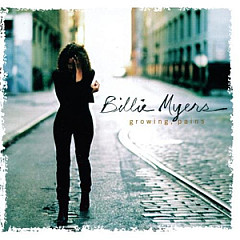
Kiss The RainBillie Myers
Desmond Child thought Gavin Rossdale was singing "Kiss The Rain" on the Bush song "Glycerine." When he found out the truth, he wrote a song called "Kiss The Rain" for Billie Myers.
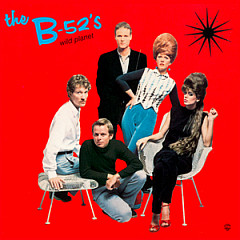
Private IdahoThe B-52s
The B-52's picked chose the location of their song "Private Idaho" because the state had a reputation for being wacky and mysterious. The title was a play on the phrase "Private Eye."
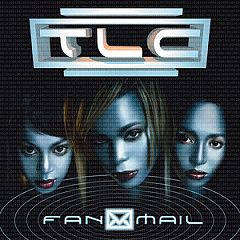
No ScrubsTLC
"No Scrubs" introduced the term "scrub" to the popular lexicon, and defined it in the opening lines ("a scrub is a guy that think he's fine...").
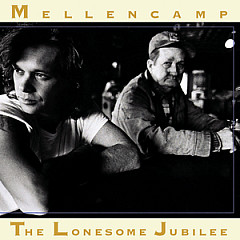
Cherry BombJohn Mellencamp
The line in John Mellencamp's "Cherry Bomb" that sounds like "that's when a smoke was a smoke" is actually "that's when a sport was a sport," according to the published lyric. In that sense, "sport" is an endearment for someone of good nature.
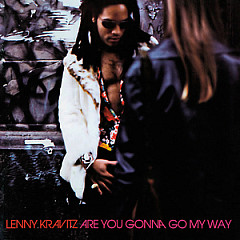
Are You Gonna Go My WayLenny Kravitz
"Are You Gonna Go My Way" by Lenny Kravitz is from the perspective of Jesus Christ: "I am the chosen I'm the one."

Auld Lang SyneTraditional
The New Year's Eve favorite "Auld Lang Syne" is a Scottish song that roughly translates to "Days Of Long Ago."
Editor's Picks

Kristian Bush of SugarlandSongwriter Interviews
Kristian talks songwriting technique, like how the chorus should redefine the story, and how to write a song backwards.

Wedding Bell BluesSong Writing
When a song describes a wedding, it's rarely something to celebrate - with one big exception.
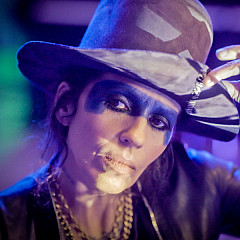
Linda PerrySongwriter Interviews
Songwriting Hall of Famer Linda Perry talks about her songs "What's Up" and "Beautiful," her songwriting process, and her move into film music.
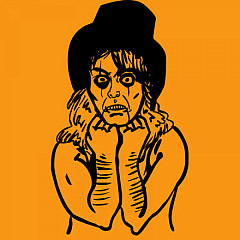
Alice CooperFact or Fiction
How well do you know this shock-rock harbinger who's been publicly executed hundreds of times?

John WaiteSongwriter Interviews
"Missing You" was a spontaneous outpouring of emotion triggered by a phone call. John tells that story and explains what MTV meant to his career.
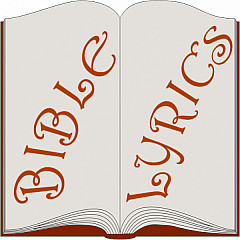
Bible LyricsMusic Quiz
Rockers, rappers and pop stars have been known to quote the Bible in their songs. See if you match the artist to the biblical lyric.

